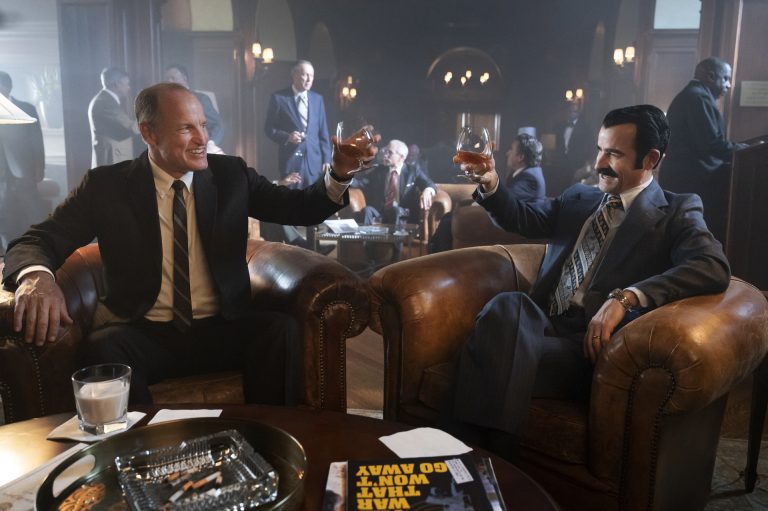In Time” is a 2011 sci-fi movie directed by Andrew Niccol, featuring the likes of Justin Timberlake, Amanda Seyfried, Cillian Murphy, Olivia Wilde, Johnny Galecki, Matt Boomer, Alex Pettyfer, and Vincent Kartheiser. The movie takes place in a world and age where old-school cash, gold, and all the fancy stuff that once carried weight have lost their value. It’s all about “Time,” the only coin that talks in this dominion. Fancy a cup of joe? Fork over some “Time” to the guy on the coffee stand. Need a lift? Toss some “Time” to the cabbie.
Even bidding farewell to a loved one in the flicker of flames requires a “Time” offering. It’s the lifeblood of this existence. In this sphere, “Time” is more than a simple medium of exchange; it’s your breath, your pulse. Deplete it, and you’re a goner, keeling over in plain sight. Everyone’s got a clock embedded in their hands, a ticker that lays out their time’s tally. It’s a world where the rich and wealthy can sip the fountain of youth forever while the destitute cling to the hope of seeing the sun rise again.
Recommended Read: 12 Monkeys (1995) Movie Ending, Explained & Themes Analyzed
In Time (2011) Plot Summary & Movie Synopsis:
The movie introduces us to Will (Justin Timberlake), a hardworking daily wage laborer juggling multiple jobs to provide for himself and his mother, Rachel (Olivia Wilde). Their financial situation is dire, with rent and loans piling up, and Rachel only has three days left to turn things around. Desperate to help, Rachel secures a two-day job at the Garment District, but she’ll need Will to pick her up, as time is of the essence. Fate takes an unexpected turn when Will encounters Henry Hamilton (Matt Boomer) at a local pub.
Henry, in a generous mood, has been footing the bill for everyone’s drinks throughout the night. Concerned for Henry’s safety, Will warns him about the possibility of being targeted by minute men if he stays. However, Henry remains indifferent to the risks, seemingly apathetic towards life and death. Soon, minute-men, a group of menacing time-stealing criminals, storm the pub. Their leader, Fortis, demands that Henry surrender his precious time. Fortunately, Will intervenes and saves Hamilton from getting robbed or, in this context, getting killed.
Why Did Will Travel to Greenwich City?
Henry Hamilton, at the age of 105 and with a century’s worth of time left, despises the idea of living indefinitely. He firmly believes that everything, including people, is meant to die. Hamilton also reveals that the elite deliberately increase taxes and prices daily to ensure those living in the impoverished ghetto meet untimely deaths. At the same time, the rich in Greenwich can enjoy immortality. Recognizing Will’s inherent goodness and potential to make a difference with the gifted time, Hamilton transfers his entire century of time to Will while he sleeps, reserving only five precious minutes for himself to savor the sun one last time. After those fleeting moments, Hamilton peacefully passes away.
Blessed with this newfound time, Will wastes no time in using it for good. He rushes to his friend Borell (Johnny Galecki) and rewards him for a decade of time. Will now has the means to leave the ghetto and relocate to Greenwich City with his mother, something he desperately wished for years. Yet, before he can execute his plans, tragedy strikes. Will’s mother, Rachel, falls victim to the heartless price hike imposed by the government, doubling the cost of public transport.
Helpless, Will witnesses her life slipping away right before his eyes, underscoring the harsh realities of their society. Will books a limo service and travels to Greenwich City to make the elites pay for her mother’s death and that of countless others. Meanwhile, Raymond Leon (Cillian Murphy), a timekeeper, investigates the circumstances surrounding Hamilton’s death. He can’t seem to digest the fact that a man with a century’s worth of time would willingly travel to the ghetto, where even a minute is fiercely contested and can lead to lethal altercations. Leon also uncovers that merely 24 hours after Hamilton’s passing, Will Salas spent almost four years traversing four different time zones.
Why Did Will Kidnap Sylvia?
Will’s path crosses with Sylvia Weis (Amanda Seyfried), daughter of Philippe Weis (Vincent Kartheiser), a wealthy and influential man in Greenwich City. Will outplays Philippe Weis in a game of blackjack, catching Sylvia’s attention and earning an invitation to her lavish house party. At the party, Philippe Weis again invites Will to another blackjack game. But before the game can commence, Leon interrupts and apprehends Will for questioning. Will clarifies that he hasn’t stolen Hamilton’s time but was gifted it willingly. Unfortunately, Leon remains unconvinced and cruelly confiscates all the centuries worth of time Will has, leaving him with a mere 2 hours.

Will takes matters into his own hands, subdues the timekeepers, and abducts Sylvia, hoping to find a way to gain some time. Tragically, the duo gets into a road accident, allowing the minute-men to seize Sylvia’s time. Fortunately, Will and Sylvia buy a day by pawning the latter’s diamond ring. Will contacts Philippe and asks for 1000 years to be distributed to the Time Lines in Dayton in return for Sylvia’s safe return.
Philippe declines to pay the ransom and sends Leon to eliminate Will. Fortunately, Will survives and makes it out with Sylvia. Will tries persuading Sylvia to return to her father. But she denies it, explaining she’s sick of living in a world where the rich are immortal, and the impoverished are merely surviving. She even helps Will rob multiple banks and distribute all the stolen time to the people in Dayton.
In Time (2011) Movie Ending Explained:
What Happened to Will and Sylvia?
Leon and his team of time-keepers successfully trace Will and Sylvia to a dilapidated motel, setting off a tense cat-and-mouse chase. Despite the odds stacked against them, Will and Sylvia manage to outmaneuver the timekeepers once more. Meanwhile, Fortis, in a bid to extract information about their whereabouts, orders his men to line up the residents of Dayton and steal their time until someone reveals Will’s hiding spot. Eventually, a man divulges that Will and Sylvia are holed up in the Century Hotel. Fortis and his men storm into Will’s room at the Century Hotel, attempting to steal Will’s remaining time. However, a fierce struggle ensues, and Will takes Fortis and his men down.
Will and Sylvia devise a plan to strike at the heart of Philippe’s empire. Disguised as one of Philippe’s guards, Will confronts him at gunpoint, forcing him to reveal the location of his time capsule—a cache containing over a million years of time that Philippe selfishly hoarded for himself, denying those in desperate need. Their goal is clear: to distribute the vast reservoir of time to the oppressed and suffering masses. They successfully distribute the stolen years, forcing Leon to race after them with a shoot-on-sight order in place.
Unfortunately, Leon falls to the ground and dies as, during the chaos, he has forgotten to collect his time. The film concludes with a news report that the people had taken to the streets, reveling in their newfound abundance of time. The carefully orchestrated system of control set up by Philippe and his company begins to crumble as an unprecedented surplus of time floods the society. Meanwhile, Will and Sylvia continue dismantling the existing power structures by targeting banks and distributing time to those who have long been denied its benefits. The story ends on a note of hope, hinting at the potential for a brighter, more equal future as the tide turns to favor the marginalized and downtrodden.
Why Did the Elites Keep Raising Prices?
The powerful elites in the movie acknowledge the dangers of uncontrolled population growth in a world where people cease aging at 25 and can extend their lives indefinitely with a sufficient supply of time. To counter this potential upheaval, the privileged few devise a clever and sinister system. They intentionally inflate the prices of essential goods and services to staggering heights, ensuring that the less privileged, confined to impoverished regions, struggle to afford the basic necessities for survival.
This economic manipulation created a harrowing paradox: the elixir of prolonged youth and life, represented by time, transforms into a tool for oppression rather than a luxury. Through this scheme, the elites maintain a continuous stream of deaths within the underprivileged population. This sinister strategy ultimately upholds the existing order, allowing the select few like Philippe to wield power over the masses and sustain their dominance for thousands of years. This heartless economics of time manipulation also sheds light on the extreme lengths to which those in control are willing to go to maintain their authority and suppress any threat to their supremacy.
![Wonder Woman 1984 [2020] Review: Falls way short of its predecessor](https://79468c92.delivery.rocketcdn.me/wp-content/uploads/2020/12/Wonder-Woman-1984-768x432.jpg)




